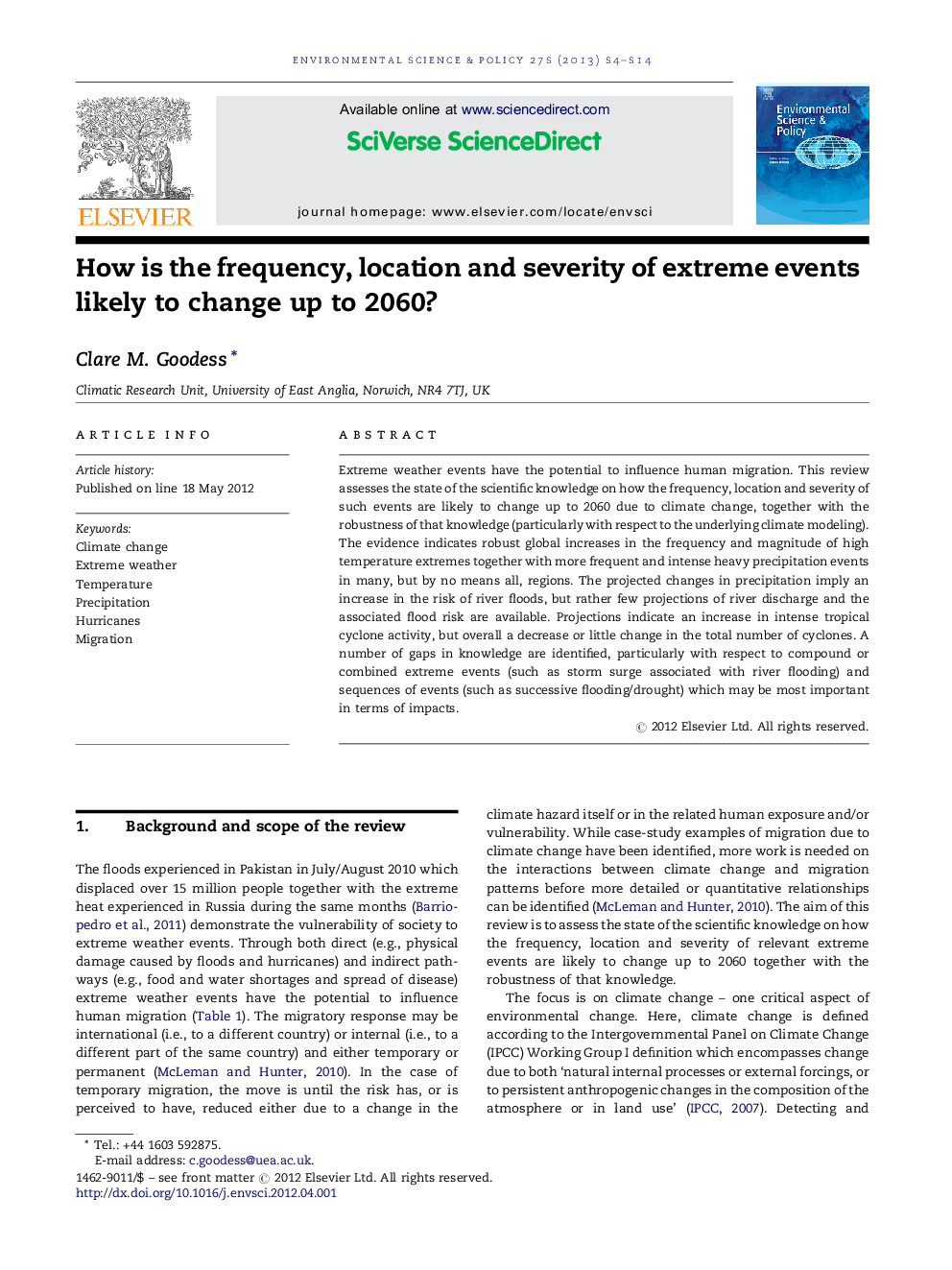| Article ID | Journal | Published Year | Pages | File Type |
|---|---|---|---|---|
| 1053734 | Environmental Science & Policy | 2013 | 11 Pages |
Extreme weather events have the potential to influence human migration. This review assesses the state of the scientific knowledge on how the frequency, location and severity of such events are likely to change up to 2060 due to climate change, together with the robustness of that knowledge (particularly with respect to the underlying climate modeling). The evidence indicates robust global increases in the frequency and magnitude of high temperature extremes together with more frequent and intense heavy precipitation events in many, but by no means all, regions. The projected changes in precipitation imply an increase in the risk of river floods, but rather few projections of river discharge and the associated flood risk are available. Projections indicate an increase in intense tropical cyclone activity, but overall a decrease or little change in the total number of cyclones. A number of gaps in knowledge are identified, particularly with respect to compound or combined extreme events (such as storm surge associated with river flooding) and sequences of events (such as successive flooding/drought) which may be most important in terms of impacts.
► We review how climate change may affect the occurrence of extreme weather events. ► Increases in high temperature and heavy precipitation extremes are projected. ► Such changes will have human impacts and the potential to influence human migration. ► But uncertainties in climate modeling and knowledge gaps need to be considered.
